This new learning site offers MasterClass-like courses, but localised for a M’sian audience

If you’re as chronically online as I am, you’ve probably come across ads for MasterClass. An American online learning platform, students are guided by well-known figures in the industry like Gordon Ramsay and Dr. Jane Goodall.
It’s an interesting concept as their personal experiences lend more weight to what’s taught. After all, wouldn’t you rather hear from people who have actually been in the field, as opposed to motivational speakers?
But it can be rather hard to relate to the mentors of MasterClass, as we have different challenges in Malaysia.
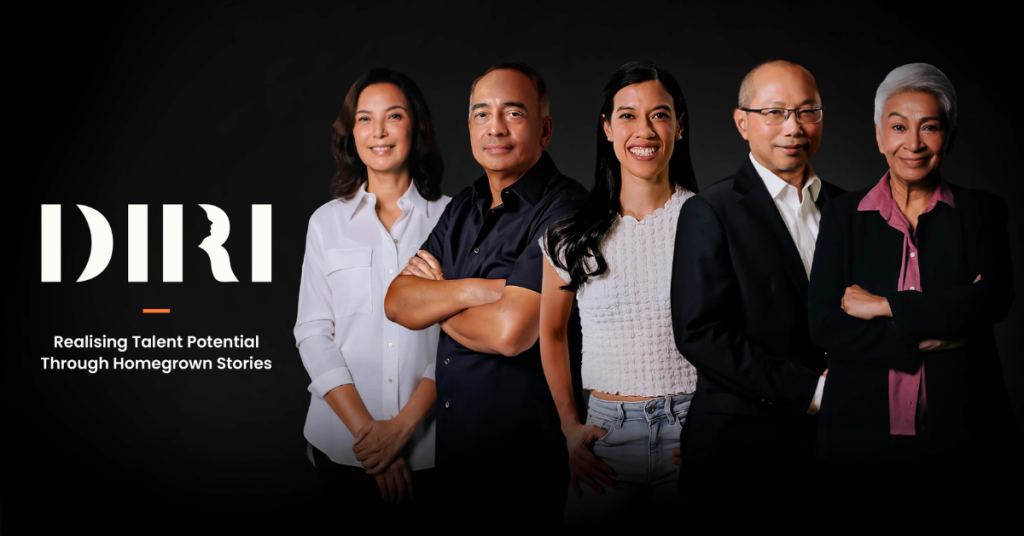
Enter DIRI, a new Malaysian edutainment streaming service that aims to redefine traditional education and corporate training.
Local content by Malaysians, for Malaysians
“DIRI fills a unique gap in localising content. While similar to MasterClass in content delivery, we focus on making our content more localised, relevant, and accessible to a broader local audience,” Sheng Wong (Sheng), the founder of DIRI, shared with us.
“Our stories, personalities, and content are tailored for local audiences, which goes beyond what subtitles can achieve.”
Hence, the courses are available in English and Bahasa Melayu with matching subtitles.
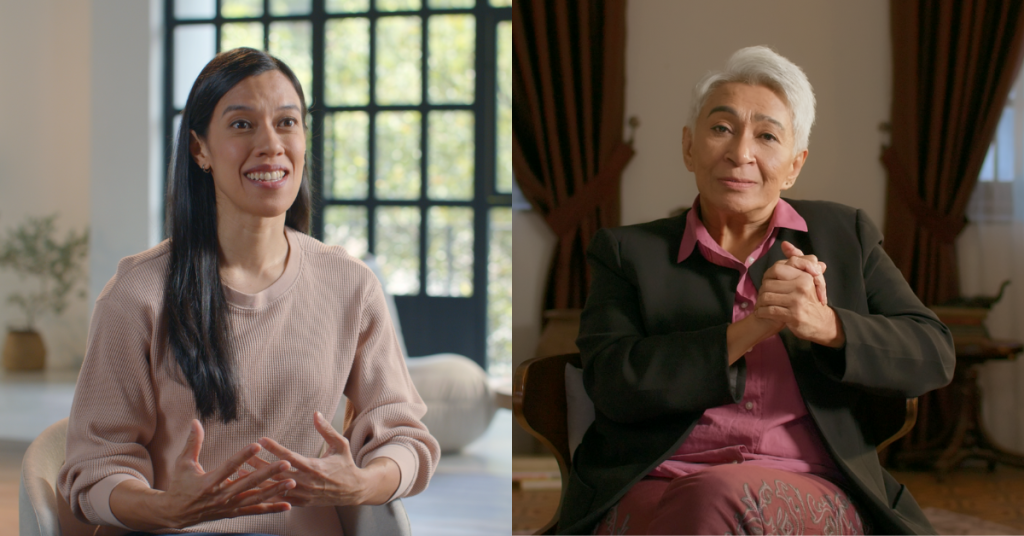
Designed for flexibility, DIRI’s courses are accessible on both desktop and mobile. Students can opt to watch the lessons in full-length or bite-sized bits, depending on their personal learning preferences.
To Sheng, the more students can identify with their mentors, the stronger the connection. When there is a good match between a mentor and mentee, it’s easier for both to communicate and relate to one another.
Aside from that, what sets DIRI apart from other online learning platforms is its focus on imparting timeless life lessons. This in turn enhances the value users can derive from them.
Mentors who have made a name for themselves
“The inspiration for DIRI came from realising that experts are great at doing [their crafts], but often need help to be equally effective at teaching [them],” Sheng said.
Growing up, he noticed that the value he received from being surrounded by good mentors wasn’t something that most people had.
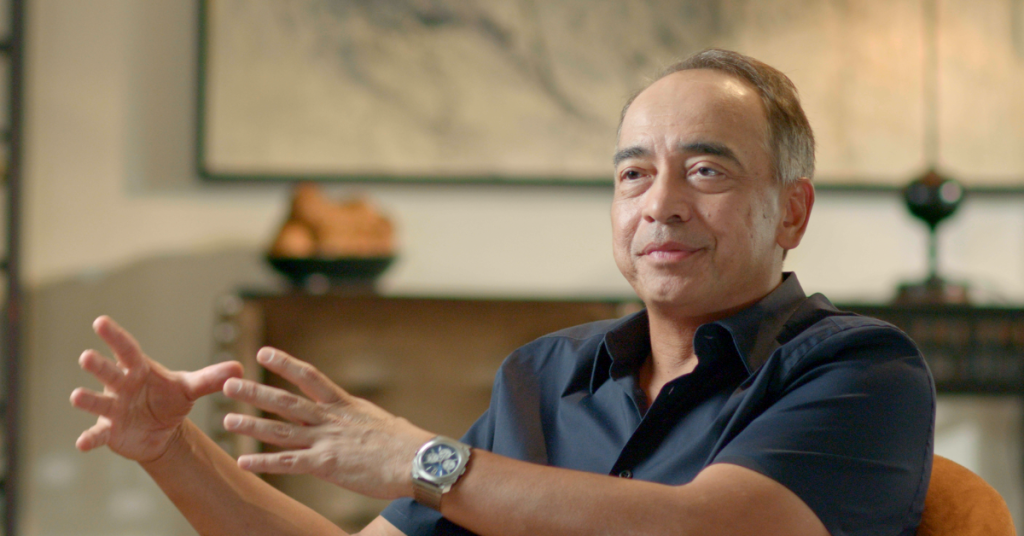
With that in mind, he wanted to offer others the chance to learn from the best in our nation. Which is why you can find part of DIRI’s Malaysian mentor lineup to include:
- Nicol Ann David, national athlete and eight-times winner at Women’s World Squash Championship
- Tony Fernandes, founder of Tune Air Sdn Bhd and CEO of AirAsia
- Dr. Mazlan binti Othman, Malaysia’s first astrophysicist
- Nazir Razak, former CEO and Chairman of CIMB Group
- Abdul Wahid Omar, Chairman of Bursa Malaysia
Mentors of DIRI are selected based on their expertise and ability to provide insights on topics like leadership, communication, and innovation.
So whether you’re a young adult seeking personal growth, or a seasoned professional wanting to upskill, Sheng believes DIRI has something for everyone.
A structured learning experience
Speaking candidly, Sheng shared that it wasn’t easy to convince mentors to join. “Their main concern was entrusting their personal brand to us and ensuring high-quality content representation.”
After numerous attempts and demonstrations of DIRI’s commitment to quality, the brand managed to soothe their worries. Once a few notable names joined and DIRI honed their messaging, the process became more streamlined.
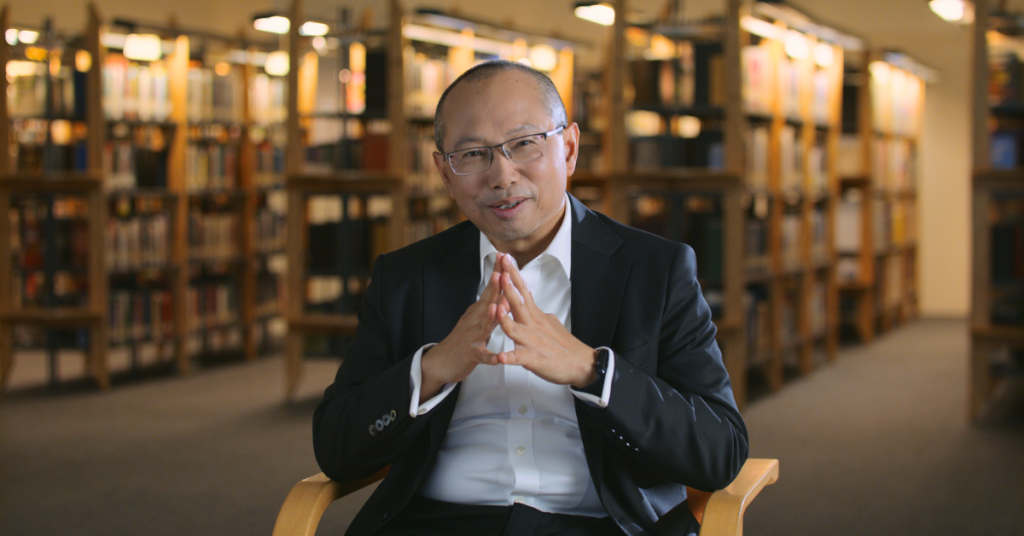
“Our goal is to ensure mentors are recognised and rewarded for their contributions,” he stated.
As such, the courses at DIRI are a collaborative effort between the platform and the mentors. To break it down, mentors will contribute their expertise to the topic at hand, while DIRI guides them in structuring the course for maximum impact.
He explained that none of the courses at DIRI are scripted. Rather, they follow a structured approach that incorporates instructional design for clear and actionable takeaways.
As for what the mentors themselves gain from this, DIRI explained that it’s a combination of monetary compensation and exposure.
For self growth and talent development
There are two kinds of courses at DIRI—one for individuals and another for corporate clients called DIRI for Business. Both are flexible in nature, ranging from two and a half to three hours, and structured into bite-sized lessons.
So far, only DIRI for Business has been launched, with a 12-month subscription for corporate clients. The subscription can cost as low as RM10/month/employee. It comes with progress tracking, so that employers can monitor the growth of their company’s talents.
This way, companies are able to ensure that their investment in the team’s education, training, and development is effective.
“Our pricing aims to be competitive and accessible, with various tiers for different company sizes, including Human Resource Development Corporation (HRDC) claimable options available.” If you’re a company interested in this, the platform is offering a Limited Early Adopter Package.
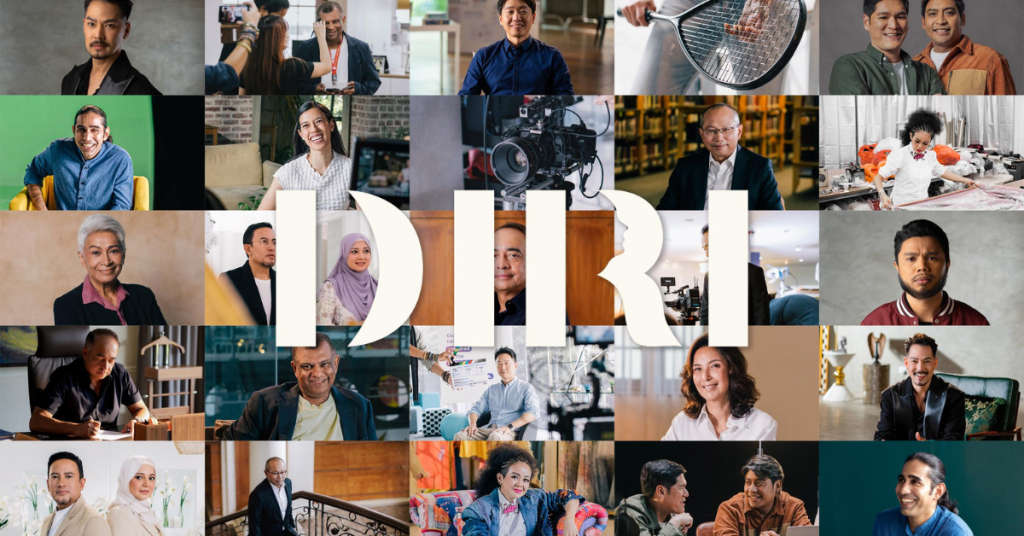
As for individuals, DIRI will be launched by early next year along with its mobile app. You could opt to purchase standalone courses, or subscribe annually to access its full library. At the time of writing, Sheng shared they currently have around 14 courses, with more in development.
“We’re focused on breaking down barriers to learning”
For now, DIRI isn’t offering certificates for students who complete their DIRI courses. But the founder believes that this shouldn’t deter people from joining the platform.
“Completing our courses provides a lifetime of wisdom and knowledge. It’s like earning a virtual trophy of knowledge and being able to stand on the shoulders of giants,” he stated.
This aligns with the brand’s goal of breaking down barriers to learning and knowledge sharing.
Though, I personally believe that providing a certification would incentivise people to sign up. It might not help much in terms of one’s career, but having a tangible token to showcase your commitment does boost your drive.
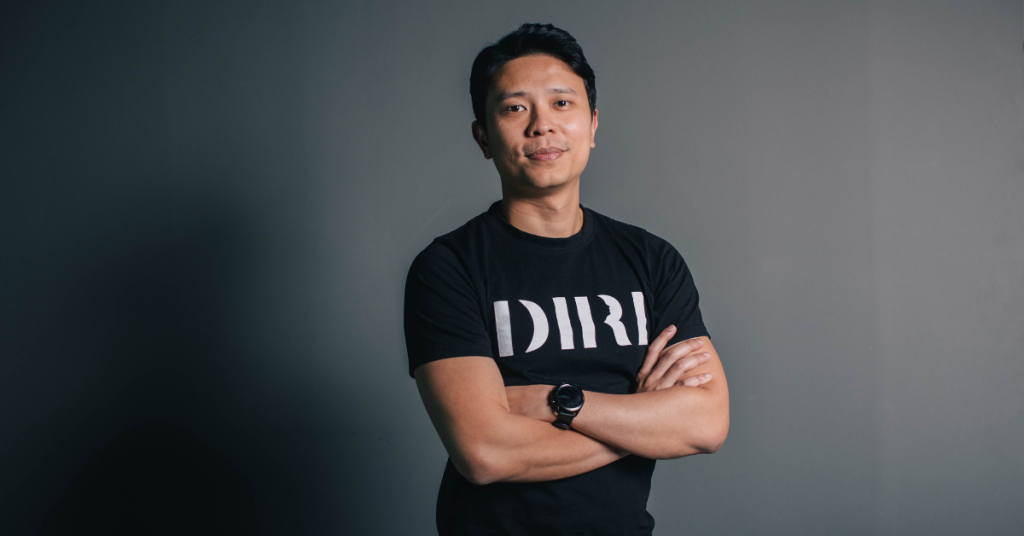
In the long run, Sheng shared that DIRI aims to partner and work with as many entities and agencies to make their content accessible to underprivileged or at risk groups. The goal is for anyone with an internet connection to be able to learn with them, regardless of personal background.
Also Read: SEBA created its own AI assistant to innovate its awards ceremony, here’s how it works
Featured Image Credit: DIRI
Anya Active founder champions body positivity with size-inclusive activewear after personal struggle
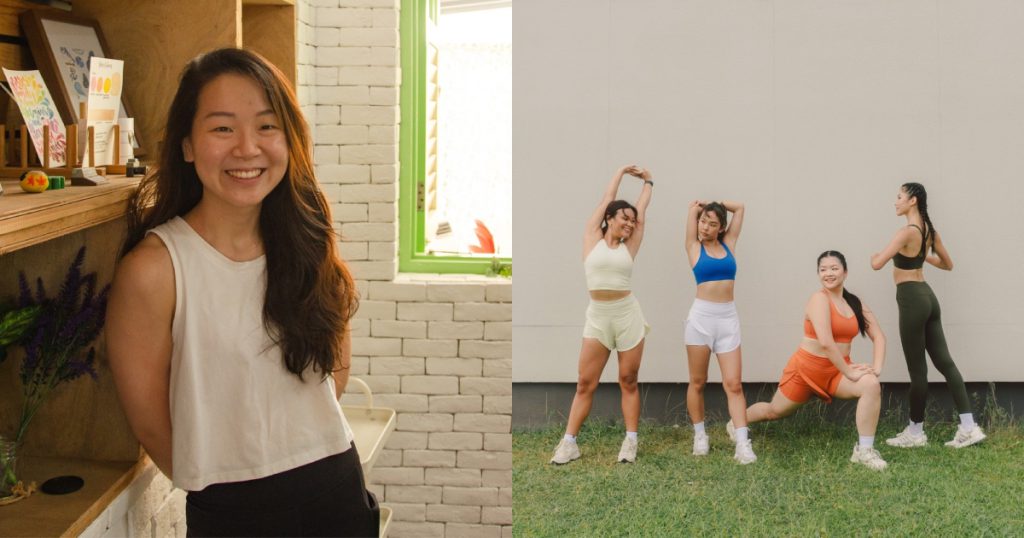
In recent years, the demand for size-inclusive fashion lines has been increasing following the body positivity movement in the West, though it has yet to make a significant mark on the runway. During this year’s Autumn/Winter (AW 2023) fashion week, shows in London featured more diversity in sizes, but only a meagre seven per cent of the looks were mid-size or plus-size.
The slow growth can also be seen in the activewear industry. Canadian activewear powerhouse Lululemon expanded their size range to a US size 20 in 2020 despite being in the market since 1998.
Melinda Sutikno, founder of Anya Active, aims to break away from these standards with her inclusive activewear, seeking to empower women to be comfortable in their own body.
As opposed to the traditional retail fashion stores that focus on ‘exclusivity’, we say ‘you can come and sit with us!’
– Melinda Sutikno, founder of Anya Active
Prior to starting Anya Active, Melinda worked in management consulting after earning a business degree from Nanyang Technological University (NTU). She had previously worked at the now-defunct honestbee, and a tech startup in Thailand, but lost her job due to the COVID-19 pandemic.
Undeterred by the risks and uncertainties, Melinda decided to take a leap of faith and invested less than S$10,000 to launch Anya Active in 2020, marking her first foray in entrepreneurship.
Personal struggle with eating disorders and body image issues
Many people often feel dissatisfied about their bodies, stemming from having low self-esteem and confidence issues. In Singapore, there has been a surge in people developing body image concerns, which when pushed to the extreme, result in the development of unhealthy eating habits and disorders.
On the other hand, some people also suffer from gym anxiety or ‘gymtimidation’ – the fear of judgement at the gym, leading them to avoid exercise altogether. These anxieties are all too familiar to Melinda.
Melinda shared that she experienced severe fluctuations in her weight, which took a hit on her overall confidence and led her to engage in excessive exercise. However, she soon realised that her motivation for exercise came from an unhealthy place, spurring her to shift her mentality.
This shift became the primary mission of Anya Active – to inspire movement, foster body acceptance, all while working towards becoming a better version of oneself.

“Inclusivity is part of our brand’s DNA,” said Melinda, adding that it goes beyond catering to a diversity of sizes; ensuring that they cater to different body shapes is key to creating flattering activewear.
However, she was quick to clarify that like any sportswear brand, comfort and mobility remain the foundational principles of all Anya Active’s garments. Features such as built-in-pockets are added to eliminate potential distractions during exercise, and the team goes through rounds of fabric sampling to comprehensively test their durability.
“We want to create beautiful pieces for women,” said Melinda, adding that they are committed to designing tailored pieces for Asian women that are versatile for exercise, leisure, and work.
Building a community-first brand
However, building a business from the ground-up has not been easy for Melinda. She shared that Anya Active was launched at the height of the COVID-19 pandemic, which led to several delays in the supply chain that inevitably slowed down her progress.
On the other hand, as more people embraced exercise during the pandemic, it provided an opportunity for new players like Anya Active to establish loyal relationships with customers. A handful of customers have remained loyal to the brand since its inception, boosting Melinda’s confidence as an entrepreneur and guiding the overall design and business direction.
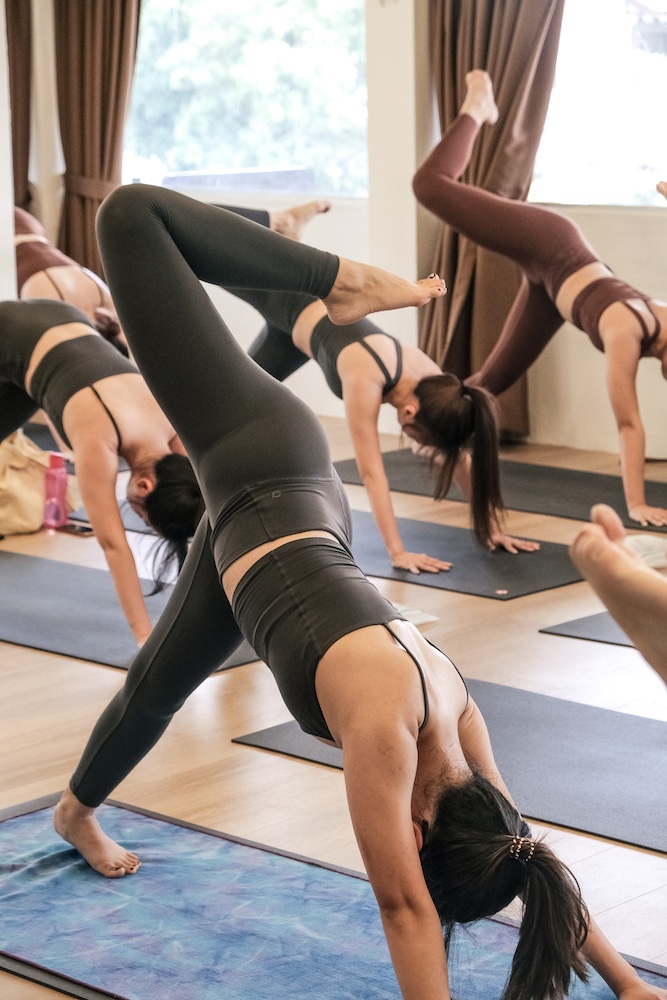
“We are a community-first brand, and this approach helped set us apart in the market,” said Melinda. She elaborated on the growth of Anya Active, emphasising the active involvement of their customer community in testing new designs and incorporating their feedback to refine her garments.
While expressing gratitude for customer input, she underscored the brand’s commitment to its artistic direction – focused on timeless colours and designs. She explained that these elements not only exude elegance and femininity, but they also inspire confidence in an understated way.
There’s still room for growth
Melinda also acknowledges the imperative of sustainability in business, extending beyond the use of environmentally-friendly materials. She explained that they are now producing garments in smaller batches to reduce wastage and are working towards developing fabrics that are more environmentally-friendly.
Currently, Anya Active primarily sells their products via their e-commerce website and works with like-minded individuals and businesses to expand their reach. This includes notable partnerships with The Editor’s Market, one of Singapore’s mainstay fashion brands, and Actually SG, a multi-label fashion and lifestyle boutique, where customers can personally shop for Anya Active’s garments.
Despite the brand’s steady growth, Melinda envisions more growth for the business and herself as an entrepreneur. She noted that her team has expanded, and she is committed to becoming a better leader. She also highlighted the importance of capital management, adding that it is an ongoing challenge to take calculated risks and being prudent when managing finances.
Expressing her ambition, she aims to open physical outlets within the next five years. In the meantime, her team will concentrate on expanding their reach and building their online community.
To us, Anya [Active] is just a vehicle to reach out to more women, and to spread our mission of inspiring movement while accepting our bodies.
– Melinda Sutikno, founder of Anya Active
Embark on your startup journey with MAS-regulated ANEXT Bank, one of Singapore’s first digital banks for SMEs.
Featured Image Credit: MeetInsights/Anya Active via Instagram
Also Read: TCM to HDB: This 32-year-old pays homage to S’pore’s cultural heritage with viral F&B concepts
New lease of life? Temasek Trust to acquire MoneyOwl to serve youths, essential and gig workers
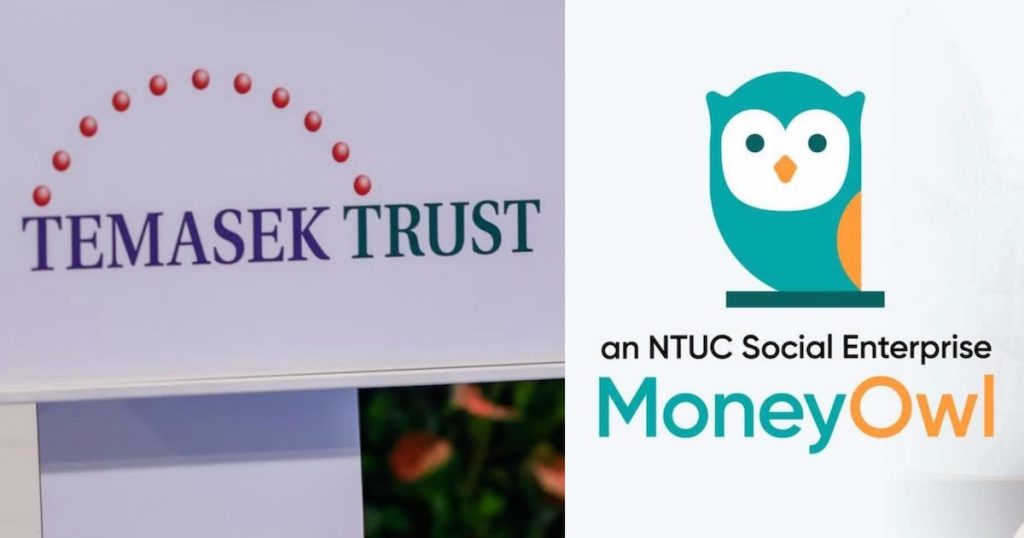
In a move aimed at advancing financial well-being for specific community groups, Temasek Trust, the philanthropic steward and ecosystem-builder, has signed an Expression of Interest with NTUC Enterprise Co-operative Limited to explore the acquisition of MoneyOwl.
MoneyOwl, established in 2018 as an NTUC social enterprise, combines human expertise with digital platforms to deliver comprehensive financial planning services, insurance, investments, and will writing.
However, following a joint review with NTUC Enterprise, it was announced on August 31 that MoneyOwl would wind down its financial advisory business and transfer its investment and insurance services to iFAST by the end of the year, citing commercial viability concerns.
Chuin Ting Weber, CEO and Chief Investment Officer of MoneyOwl, explained that the repurposed MoneyOwl, under Temasek Trust, will focus on driving the common good, moving away from the direct retail sale of commercial products.
Temasek Trust aims to repurpose MoneyOwl’s capabilities, intellectual property, and technology platforms to develop targeted products and solutions for essential workers, gig workers, and youths. The catalytic capital approach will be employed to de-risk the new business model and attract partners from the public, private, and philanthropic sectors.
The proposed acquisition is currently pending regulatory approval. Desmond Kuek, CEO of Temasek Trust, expressed alignment between MoneyOwl’s mission and Temasek Trust’s goals of uplifting communities through education and advancing progress.
While some services, like Comprehensive Financial Planning, will be paused for a refresh, MoneyOwl will continue providing its free digital Will-Writing service, online educational content, and Corporate Financial Wellness programs on a case-by-case basis.
The proposed acquisition signals a new chapter for MoneyOwl, contributing to the overarching mission of fostering financial well-being in the community.
Featured Image Credit: Temasek Trust / MoneyOwl
Also Read: MoneyOwl to wind down by end 2023 – iFast Financial to take over its investment, insurance arm
M’sian male entrepreneurs open up about mental health & how they dealt with their struggles

When you’re facing a mental health issue, it can be tempting to sweep it under the rug. There are often many other matters in life and work that we may feel have to be prioritised instead.
And if you’re someone that people look up to, like the leader of a company or an entrepreneur making business deals, it can be even more difficult to acknowledge that you need help. After all, time heals… right?
But that’s really not how mental health works, and it’s not the best way to go about it.
So in celebration of Men’s Health Awareness Month, we spoke to three Malaysian male entrepreneurs to understand their personal struggles with mental health and how they’ve been dealing with it. They are:
- Chor Chee Hoe, co-founder and CEO of Qarbotech, an agritech brand offering products to shorten the crop cycle and increase plant growth
- Shavkat Aslamshoev, co-founder and Managing Director of SafeTalk, a cloud-based Practice Management System for mental healthcare providers
- Timothy Tiah, founder and Executive Director of Colony Coworking Space (Colony), a brand of hospitality-inspired coworking and event spaces
A look back on their personal mental health journey
For most people (myself included), I find that when faced with major life-altering news, we’ll go through the five stages of grief, starting with denial. This was what all three entrepreneurs felt when they were first confronted with the possibility of having a mental health issue.
For Chee Hoe, it was in the form of significant stress that badly affected his sleeping pattern. At the time (October 2022), his startup had less than three months of runway left. As leader of the company, he was understandably distressed.
“I woke up every night [around] 1:30AM to 5AM to work, mainly looking for revenue generation opportunities and potential investors,” he confided.
And yet, he didn’t find this out of the ordinary or troubling until his wife pointed it out. Only then did he realise that it was a symptom of anxiety.
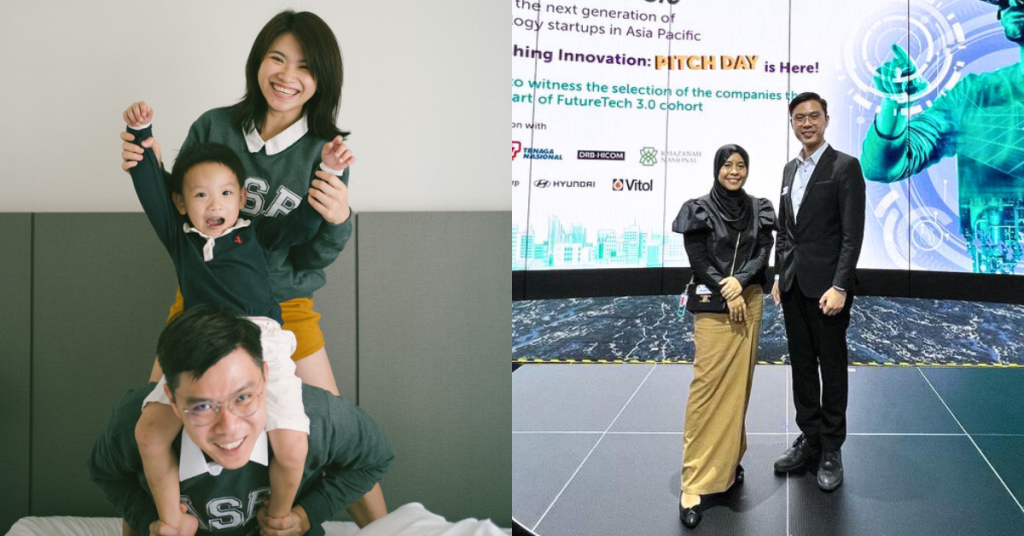
Not-so-fun fact: Stress can cause sleep deprivation. Frequently being in a heightened state of alertness can delay the onset of sleep and causes rapid, anxious thoughts to occur at night. The lack of sufficient sleep from this can then cause further stress.
In Timothy’s case, he wouldn’t believe that he had depression and anxiety even after his diagnosis.
“You know, we use the word ‘depression’ very lightly. Like ‘Oh I feel very depressed’, so I was wondering what’s the big deal?” Timothy shared.
A pivotal moment in him realising he had these struggles was during a conversation with his wife. He told her, “It’s not that I’m depressed. I don’t feel sad, I can’t feel joy. And then she said, ‘That’s depression.’”
For Shavkat, his mental health struggles came in the form of sleep paralysis episodes.
Not-so-fun fact: Sleep paralysis is a condition where you briefly lose muscle control after falling asleep or before waking up. During these episodes, people often experience hallucinations and a sensation of suffocation.
“I found myself struggling, feeling like I couldn’t breathe properly during my sleep. During those times, each night became a struggle. The sensation of suffocation was intense and frightening,” Shavkat explained.
“I felt restless all the time. Imagine needing sleep but being scared to fall asleep because you know it will be a nightmare again. This constant unease affected my personal and work life.”
But talking about mental health wasn’t common in his hometown of Tajikistan, and that stuck with him even after moving to Malaysia.
So how exactly did they go about it and what learnings did they pick up?
1. You can’t bottle it up and expect to get better
To quote Chee Hoe, “Mental health issues are like fire. If you keep it under wraps, it will burn like an explosive flame in the future.”
In other words, the longer you keep the issue to yourself, the more catastrophic it will be for you in the long run. Which is why he recommends finding an outlet to express your mental health struggles.
“They may not [be able to] offer you any solutions, but they are there to hear you out,” he shared.
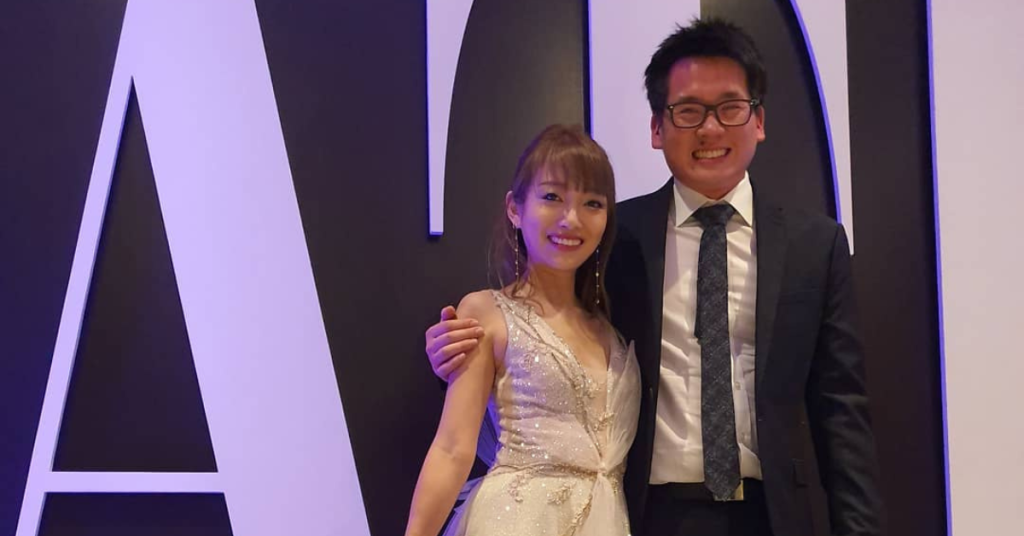
In Timothy’s case, depression in itself is a difficult struggle to go through by yourself. “It’s a lonely mental illness. It convinces you that you’re all alone, not worth it, and that nobody wants to help you,” he explained. So having people around him to refute that was very important.
As for Shavkat, his recurring sleep paralysis episodes made simple things hard. “I lost joy in things I used to enjoy. Making decisions felt tough, and it became challenging to connect with people.” It was only after getting help that he got back a sense of normalcy and control over his life again.
2. Don’t limit your support to just family and friends
Although he credits his wife and close friends for their support, Chee Hoe also suggested looking for external support. If you’re struggling in your career, then a good business mentor or coach could guide you.
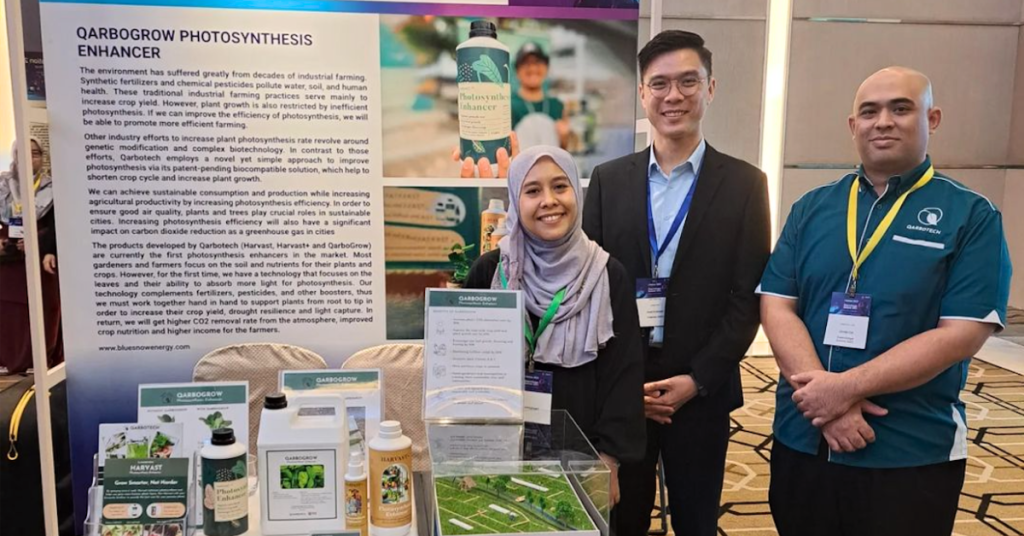
Similarly, Timothy and Shavkat explained that seeking professional help was paramount to their mental health journey. The founder of SafeTalk shared that aside from his friends, his therapy sessions were another safe space and emphasised on finding your own.
“If existing circles prove unsupportive and online communities aren’t accessible, seeking professional help is paramount. Trained professionals possess the expertise to navigate mental health struggles, and there are often affordable or even free mental health support services available.”
“It’s very hard but you should see a professional. If you don’t feel good about the one you found then find another. You’ve got to find one that fits you,” Timothy advised.
Whichever avenue you choose, it’s important to find a channel where you can safely express your feelings.
3. It doesn’t necessarily hinder you from growing as an entrepreneur
In their own ways, personally experiencing mental health struggles made the entrepreneurs wiser businessmen.
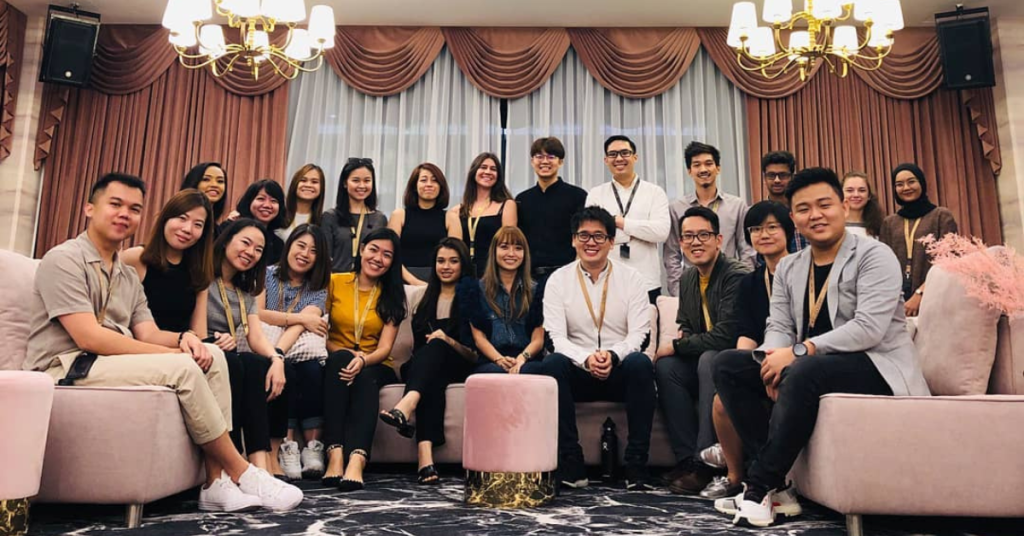
For example, Timothy shared that it helped him become a more empathetic and compassionate leader. This is reflected in Colony’s company culture, where employees who aren’t feeling mentally well are entitled to paid leave.
“I believe that when you know how to deal with people struggling with mental health, it becomes a competitive edge to attract talent,” Timothy explained. “It’s anecdotal, I can’t prove it in numbers. But I do think it’s important.”
Similarly, Shavkat made sure to integrate mental health days into SafeTalk’s employee benefits.
“We understand that everyone faces tough times and taking a break is crucial,” he said. “It’s not just a business, it’s a community that genuinely cares about the well-being of its team.”
In Qarbotech’s case, while there are no structured workplace benefits related to mental health, Chee Hoe shared that employees can submit claims for therapy sessions.
4. Being open about it could actually help your career
A key reason people avoid sharing their mental health struggles is the belief that this would be met with backlash, especially in the workplace.
You might be worried about what coworkers think of you or how it could impact your career progression. As an entrepreneur, you might wonder if it burns business opportunities.
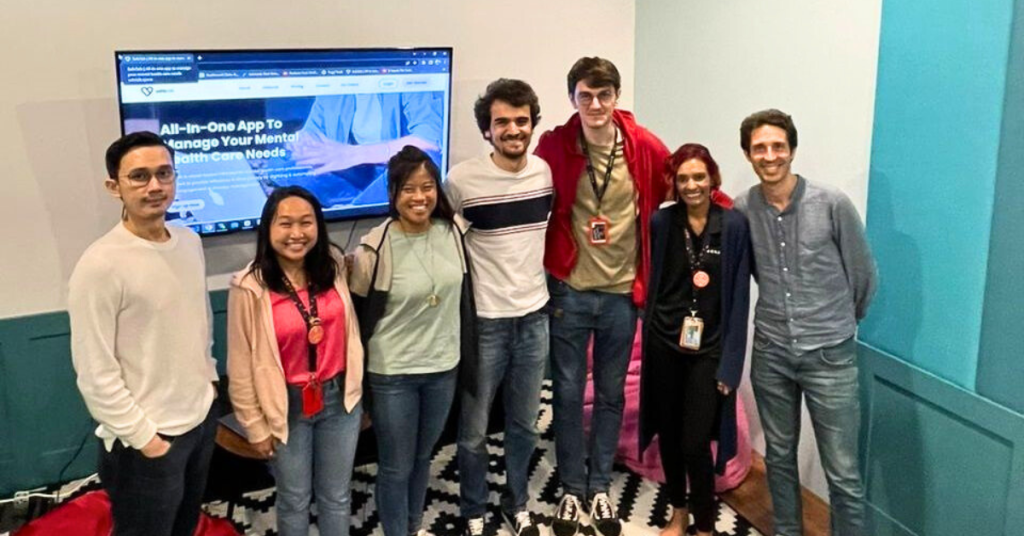
However, Timothy and Shavkat found that it actually had the opposite effect for them.
The Colony CEO shared that quite a number of entrepreneurs have privately confided in him with their own mental health struggles.
Similarly, Shavkat explained, “By being open, I’ve found common ground with others who have faced mental health challenges. This shared vulnerability has actually made my business interactions more genuine and understanding, contributing to a supportive and empathetic business environment.”
5. Talking about mental health is not a sign of weakness
A common stigma is that having mental health issues equates to you being weak. It can hinder people from looking for help and treatment. But this belief is far from the truth.
In fact, opening up about your mental health struggles actually shows the strength you have. Although, this doesn’t mean that keeping it to yourself makes you weak, either.
You shouldn’t feel obliged to share your mental health struggles, but when you feel ready and safe to do so, it can be helpful in ways you don’t expect.
Supporting this, Shavkat said, “It takes courage to be vulnerable, and it indicates a level of trust in the work environment.”
By talking about it in the workplace, it fosters a space where mutual support is the norm. “Especially when mental health struggles impact our daily routines,” he explained.
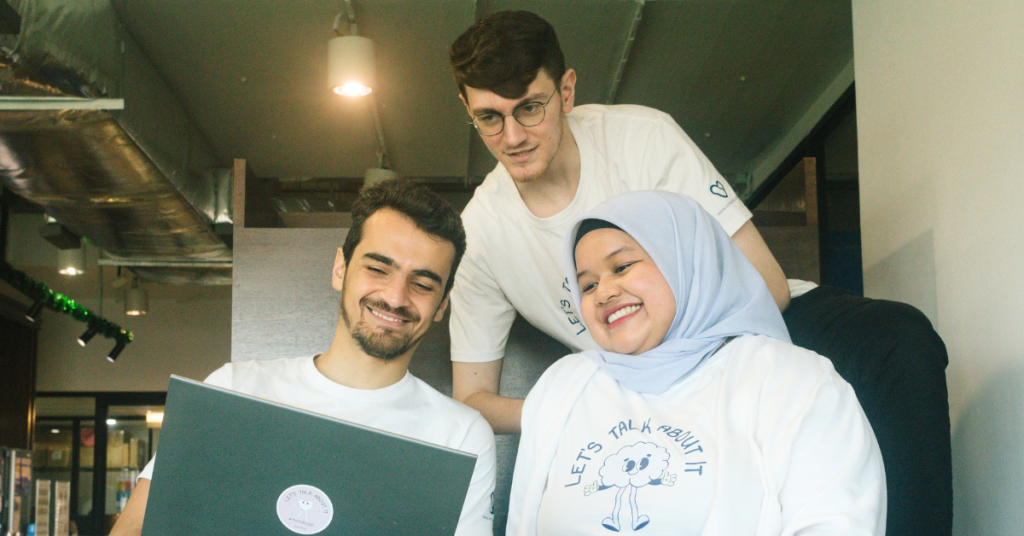
This approach allows coworkers to be understanding of your condition, and potentially plan work engagements around that. For example, if you’re only able to see your therapist on weekdays, opening up to colleagues about this could help with your appointments.
6. The only way around the stigma is to talk about it
Chee Hoe and Shavkat believe that before we can talk about overcoming mental health struggles, we first need to talk about it.
“I think it’s important to have joint community efforts to create awareness about symptoms of stress, fatigue, and mental well-being,” Chee Hoe said. “When the general public is more aware about mental health, I think the stigma will be reduced.”
Elaborating on this, Shavkat believes that sharing experiences creates a domino effect. “When one person in a community opens up about their mental health struggle, it often serves as a catalyst for others.”
This is because speaking openly about mental health struggles creates an inviting space for others, where they can realise that they’re not the only ones feeling a certain way.
7. Your mental health struggles don’t have to define you
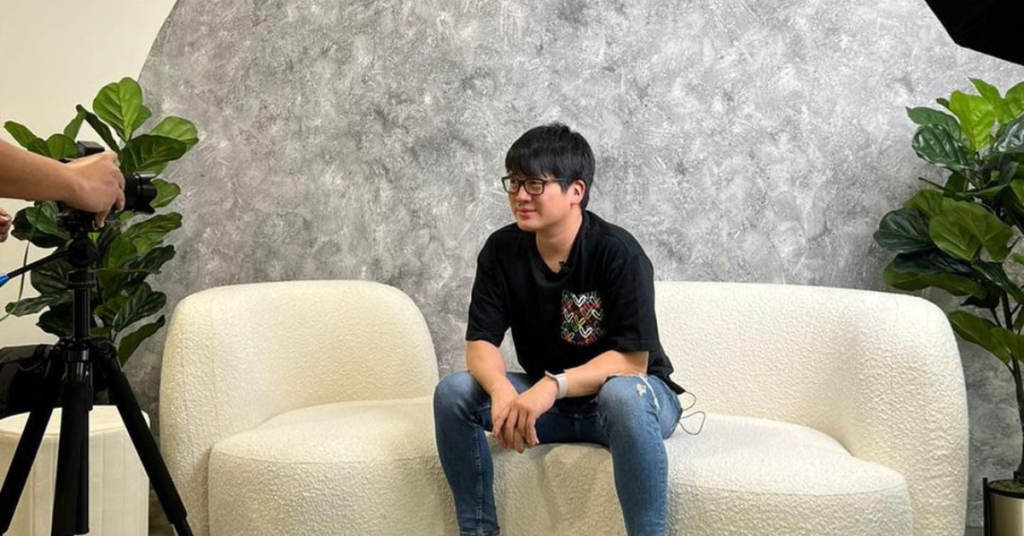
At the end of day, one important point that Timothy brought up was that you don’t have to let your mental health struggles become your identity.
“If you’ve noticed, I don’t talk much about it, and I think most people with depression don’t want to talk about it so much. Because they don’t want it to become a daily reminder that you have it. They want to move on from it,” he expressed.
In that light, you can choose to move beyond that box and act accordingly.
Yes, you’re struggling with mental health issues, but that doesn’t have to become your whole personality. You can find ways to work around your condition so that it can allow you to grow into a better version of yourself.
Think of it like any other illness in the world. If you’re having a headache, it doesn’t mean you are yourself a headache. It just means that you’re going through certain symptoms.
- Read articles we’ve written about Malaysian startups here.
Also Read: SEBA created its own AI assistant to innovate its awards ceremony, here’s how it works
Featured Image Credit: Qarbotech / SafeTalk / Colony
This M’sian successfully quit smoking with aromatherapy inhalers, so he started a biz for it
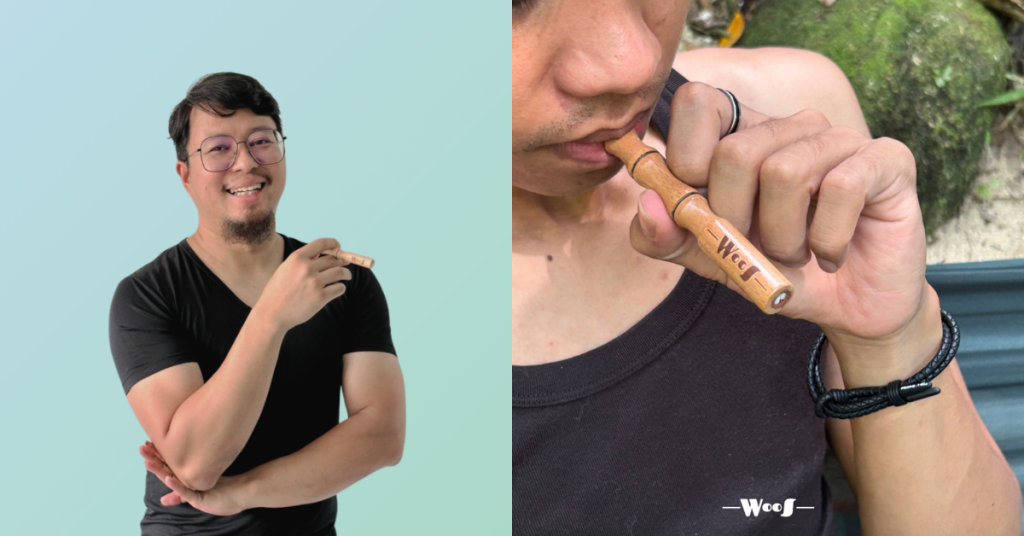
Cigarettes, and more recently vapes, have been long-standing health issues on the global stage. They’re both harmful to the body and cause lung disease, as well as cardiovascular disease.
In Malaysia alone, it’s estimated that 20,000 deaths each year are attributed to smoking.
But quitting can be easier said than done. In most cases, people continue smoking because they’ve become addicted to the nicotine found in cigarettes and vapes. And according to the University College of San Francisco, nicotine is proven to be as addictive as cocaine and heroin.
Understanding the struggles himself, ex-smoker Izzat Ishak decided to launch WooS, an aromatherapy inhaler to help people quit smoking or vaping.
We know, it sounds a little too good to be true, but hear him out.
It’s not to replace one addiction with another
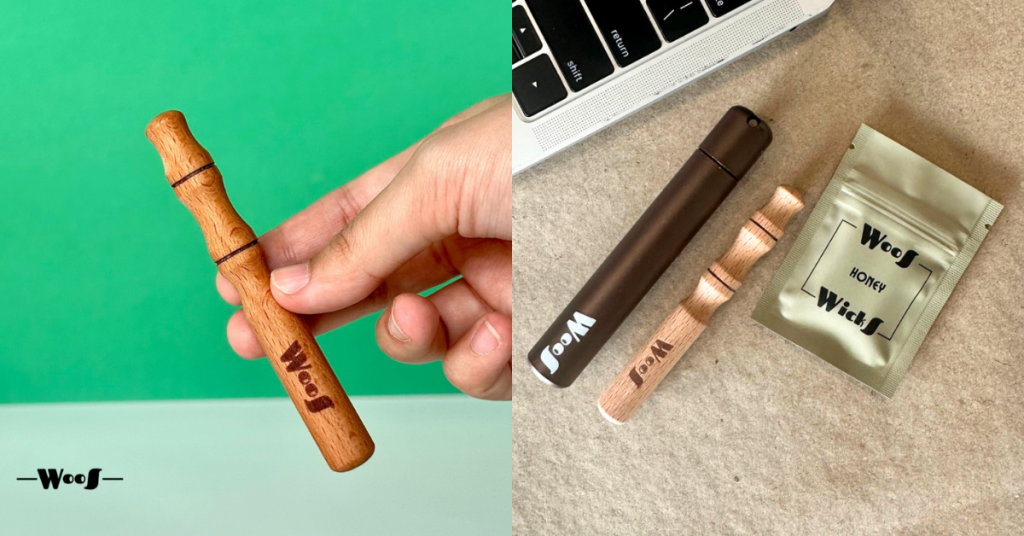
For context, an aromatherapy inhaler is just what it sounds like—a device containing essential oils that you inhale. Not through your nose, but your mouth. It’s similar to a vape, but less harmful.
You might be thinking, “Wouldn’t that defeat the purpose it serves, which is to quit smoking?” That’s the same concern we had too.
But Izzat explained that WooS essential oil inhalers are designed to provide a natural and alternative method to help people wean off smoking and vaping. “The aim is to help individuals gradually reduce their cravings and dependency on nicotine, not replace one addiction with another.”
Made using “100% pure essential oils”, it doesn’t contain nicotine. “Instead, they rely on the aromatherapeutic effects of essential oils to address the psychological and sensory aspects of addiction,” he said.
So far, it also seems that there aren’t any scientific studies that claim aromatherapy inhalers are bad for health. Though this could be due to aromatherapy inhalers being a relatively newer concept.
A sustainable and long-lasting alternative
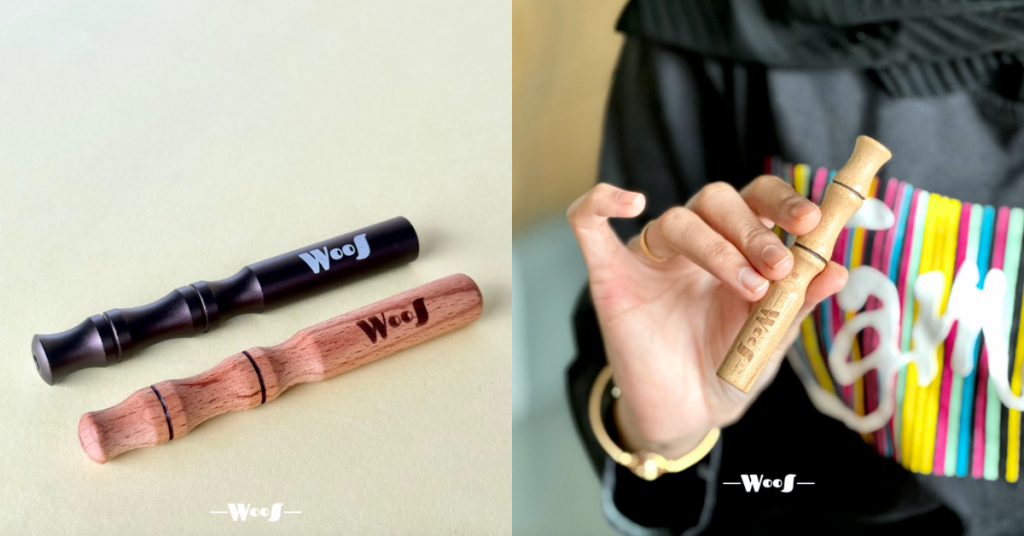
They crafted the WooS inhaler as a sustainable and long-lasting alternative to disposable ones in the market. Customers can opt for the Wood Inhaler (RM99) or the Steel Inhaler (RM109).
It’s designed to be a one-time purchase item, where users just need to periodically change the cotton wick which holds the essential oils.
As customers progress in their journey to quit smoking, Izzat explained that the frequency of cotton wicks repurchases should reduce. On average, one wick lasts up to three days. Each pack of cotton wicks comes in fives (RM25 to RM30) and in a range of flavours, which allows use for up to 15 days.
To encourage commitment, WooS provides a habit tracker as part of its 30-day challenge. This enables customers to monitor their progress.
In the couple’s experience, it typically takes WooS users about one to four months to completely stop smoking or vaping. But that’s dependent on the individual as well.
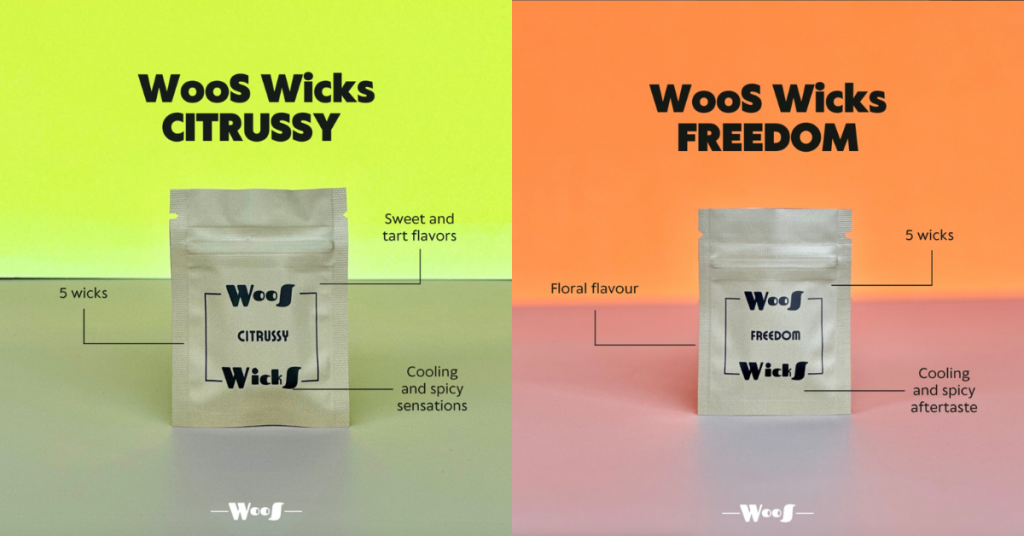
A struggle he’s personally faced as well
Speaking openly, Izzat shared that he used WooS himself to overcome his smoking addiction.
“For nearly two decades, I lived a double life as a smoker and vaper, expertly hiding it from my wife (and co-founder), Munirah, while working in the construction industry. Everything changed the day she discovered my hidden stash and confronted me about it.”
Given Munirah’s then-profession as a doctor, she always held strong values against those habits. Which made the discovery even more of a wake-up call for Izzat to quit smoking.
He began with a gradual approach, cutting down his daily cigarette intake. Some methods he tried were nicotine gum and patches, which was recommended by the National Heart Institute’s Quit Smoking Clinic.
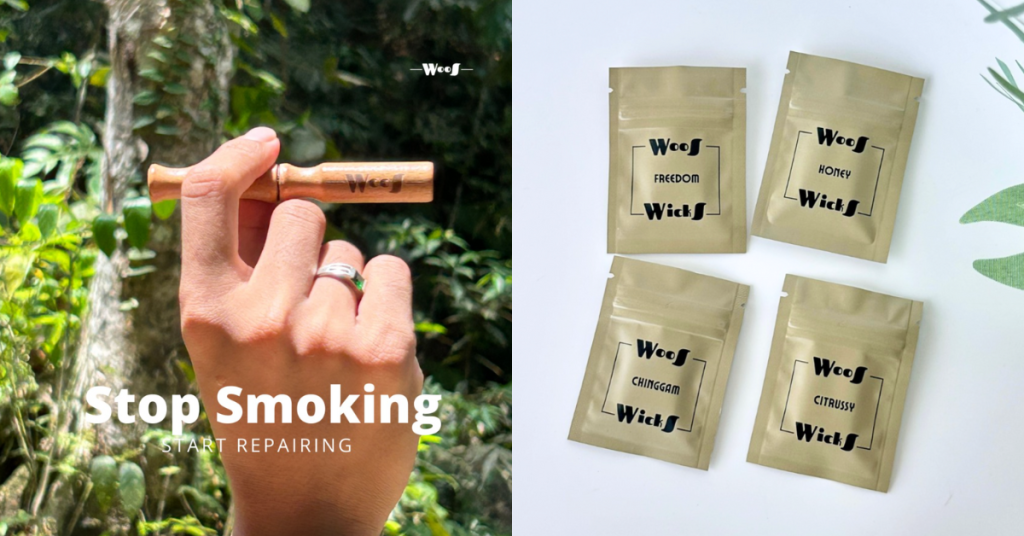
“But the intense stress of my job kept pulling me back to smoking,” he confessed. It was only after he was hospitalised for other health issues that he knew something had to change. “My recovery was complicated and slow, exacerbated by my long-term smoking habit.”
This experience, coupled with Munirah’s support, gave him the extra push he needed to find a solution.
If we have nasal inhalers, why not oral ones?
After contemplating the ways he could overcome this addiction, an idea struck.
“If inhalation, whether through the nose or mouth, ultimately reaches the lungs, why not develop an alternative that mimics smoking but is beneficial?”
They took inspiration from the widely-recognised Vicks inhaler that’s used to alleviate symptoms of runny or blocked noses. Although aromatherapy inhalers have been in the market, they mostly focused on nasal inhalation.
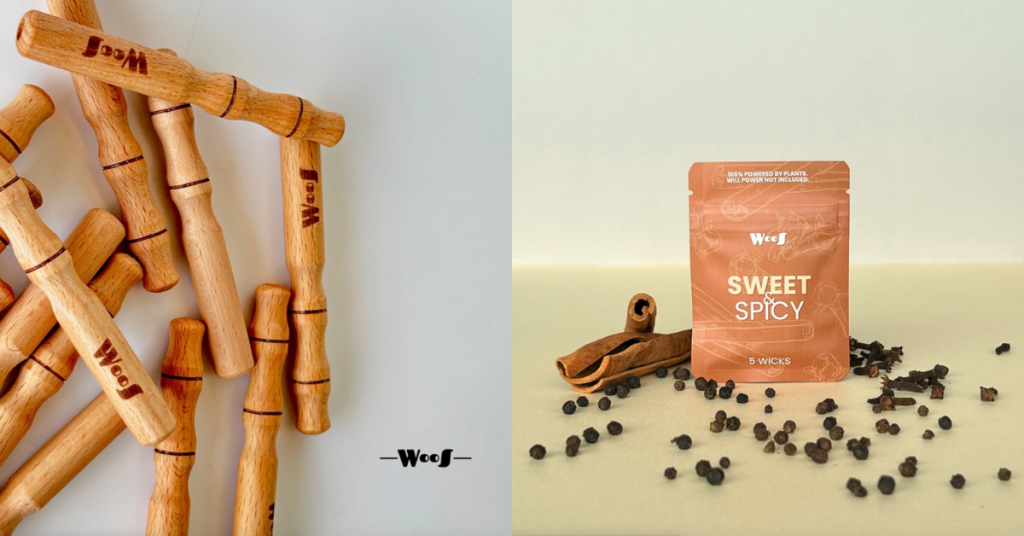
With his wife, they figured they could create one for oral inhalation. This led them to deep-dive into research papers and academic journals.
“We discovered several research papers and academic journals highlighting how essential oils could effectively reduce nicotine cravings,” he stated.
Thus, the idea for WooS was conceived.
Not their first foray in the world of aromatherapy
Before their journey with WooS, Izzat and Munirah had already been using essential oils. Initially, it was to help their children sleep better, but they noticed that it also improved the family’s well-being.
So they began sharing the benefits with close family and friends. This led to the establishment of their own essential oils business called “OilyPod”. The brand focuses on offering pure and unique blends of essential oils, and the couple still run it alongside WooS.
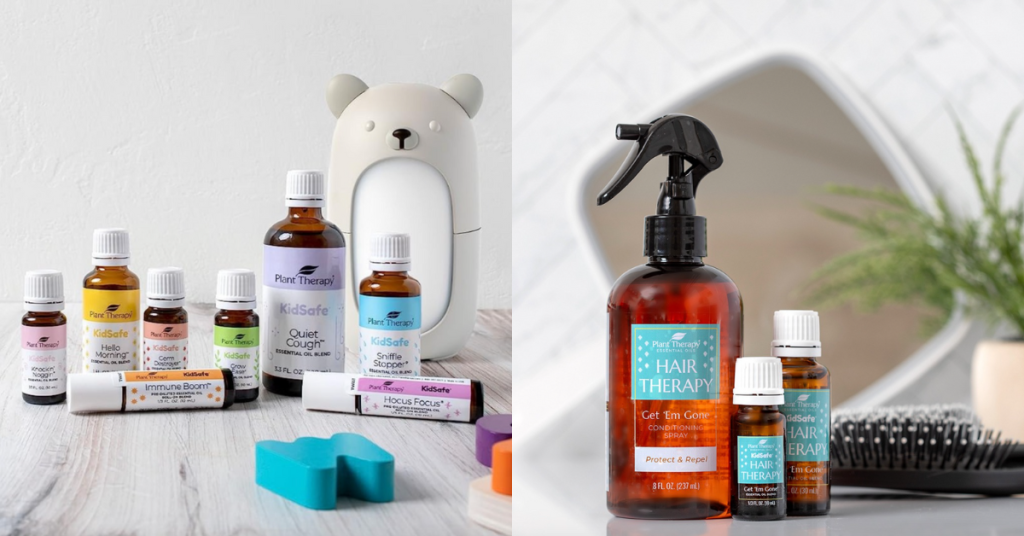
Despite their background in aromatherapy, they still spent two years on R&D to refine their first WooS inhaler. “It was crucial to ensure that our final product not only met our high standards for efficacy and safety, but also provided a satisfactory experience for the user,” Izzat explained.
Seeking approval from consumers & medical bodies
Understandably, people were quite sceptical when WooS first launched. But Izzat shared that after about two months, WooS sold out all 1,000 initial products within a few weeks.
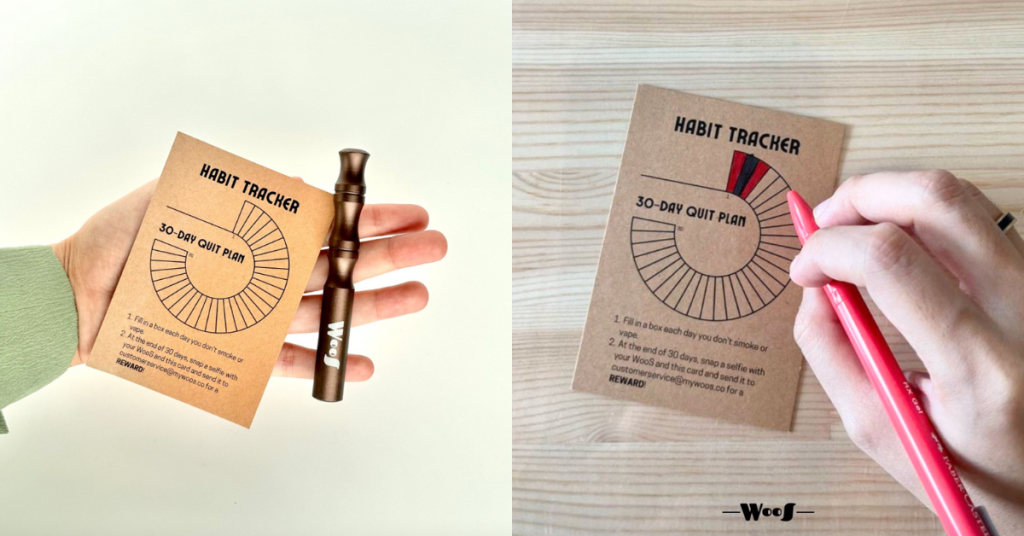
Some of their customers have shared a significant decrease in the urge to smoke, while others felt its absence completely. “Notably, some have even developed an aversion to the smell of smoke after using WooS.”
As more reviews and testimonies came in, WooS expanded into neighbouring markets like Singapore and Brunei.
The founders even shared that they’re in the process of seeking an endorsement from the Ministry of Health (MOH) for WooS as a tool for smoking and vaping cessation.
“However, as aromatherapy is not yet widely recognised by the MOH in this specific context, the process is more time-consuming than initially expected,” he said. “Our commitment to achieving this endorsement is part of our dedication to ensuring the highest standards of health safety for our customers.”
All that said, as the brand’s primary goal is to help people quit smoking and vaping, Izzat acknowledged that WooS could eventually go out of business should they accomplish that goal.
But when that day comes, they’re not too worried as they still have OilyPod to fall back on.
Also Read: SEBA created its own AI assistant to innovate its awards ceremony, here’s how it works
Featured Image Credit: WooS